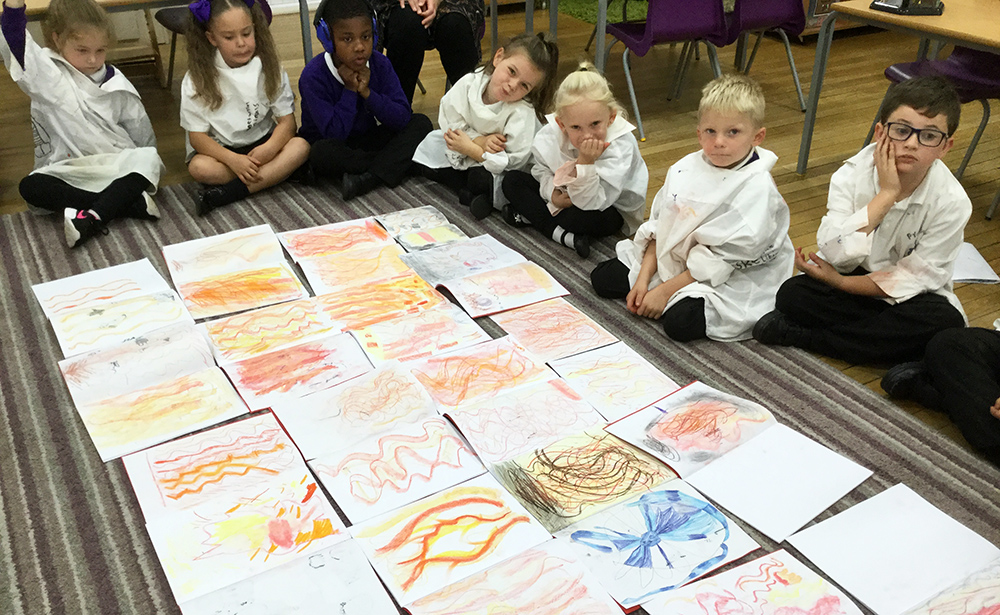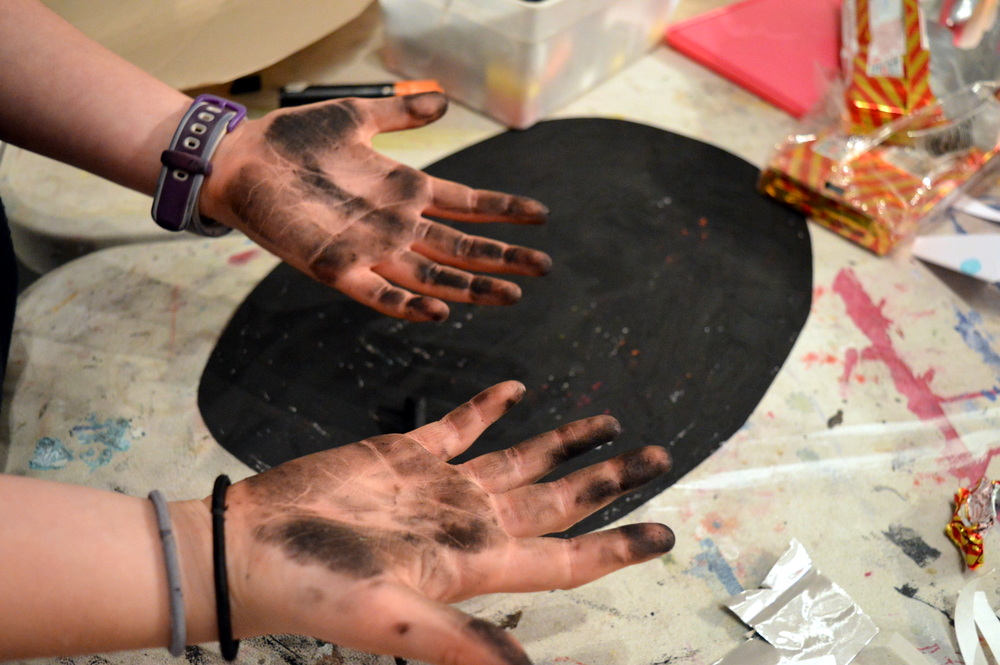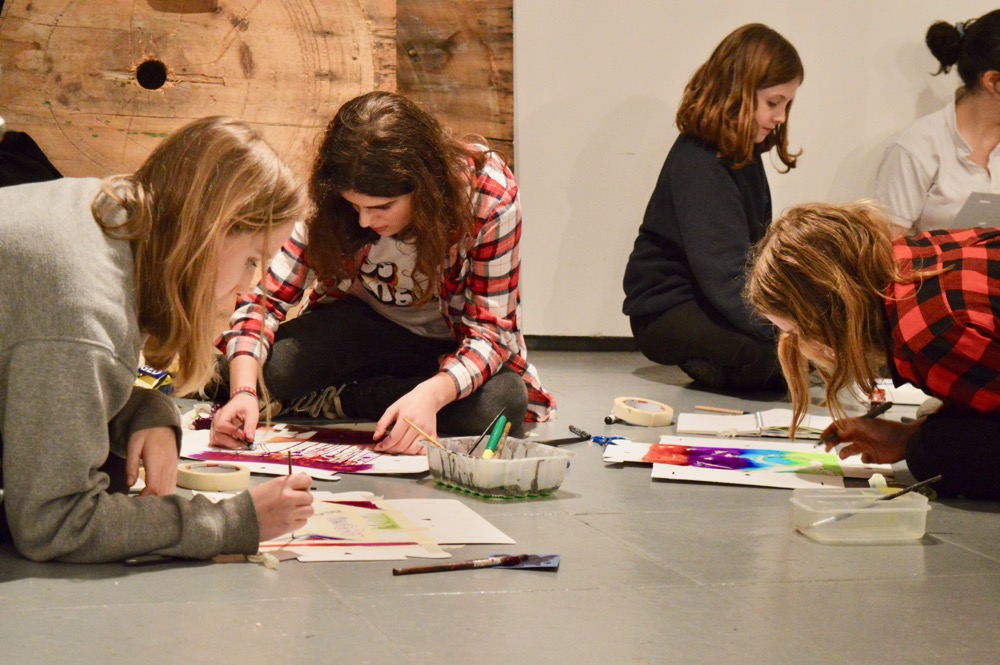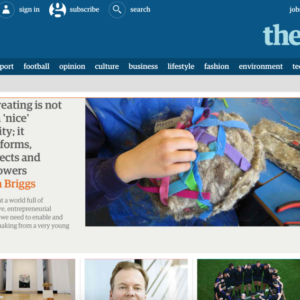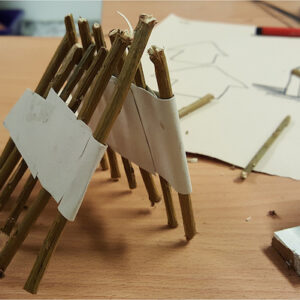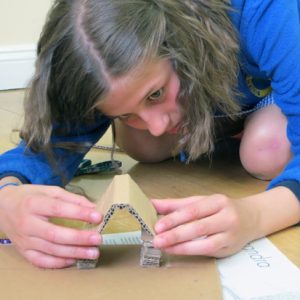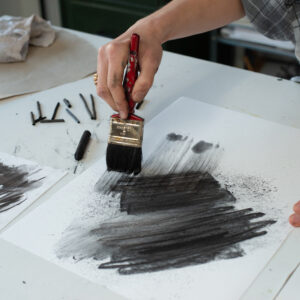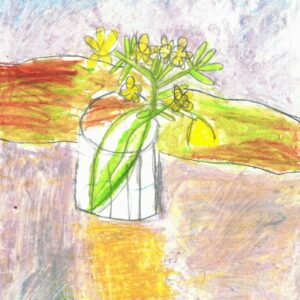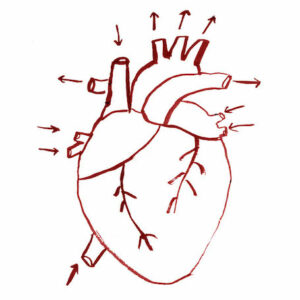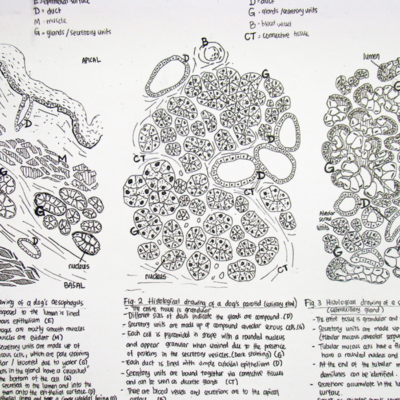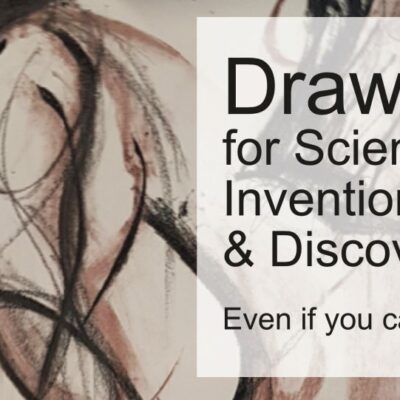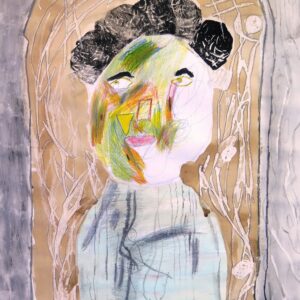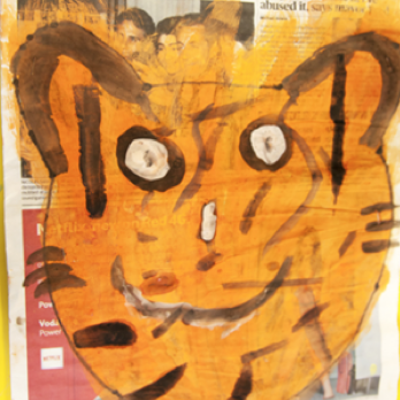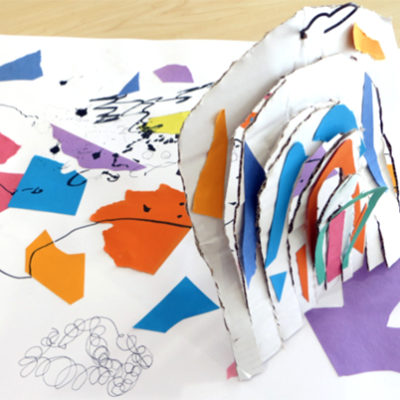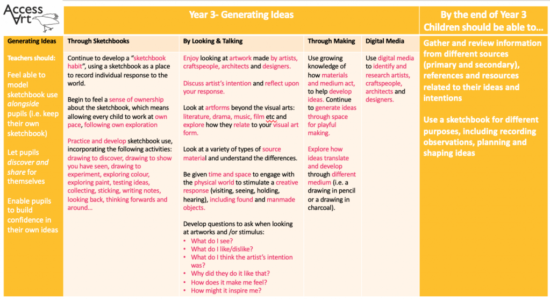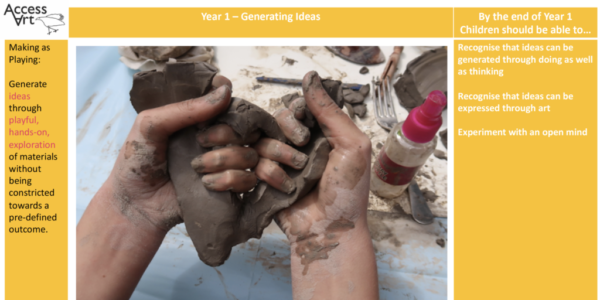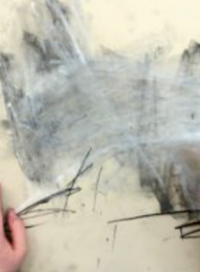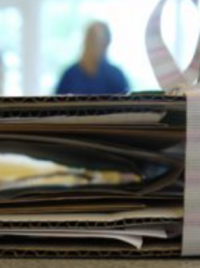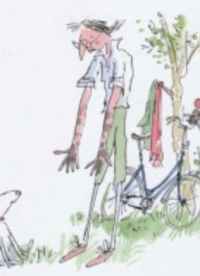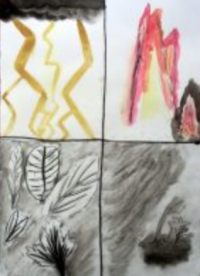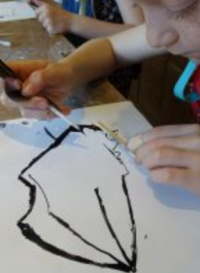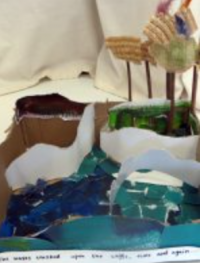-
What Are the Aims of the AccessArt Progression Plan
The AccessArt Progression Plan attempts to balance a number of important elements in art education. Create opportunities for new experiences balanced with:
- Time for repeated practice.
- Structured learning, balanced with.
- Space for personal exploration.
- The accumulation of technical skills and contextual knowledge, balanced with growing self-awareness of what it is to be a creative being.
Through all of the above, our aim is to enable individual pupils to make appropriate choices regarding materials and processes and to be empowered towards making a personal, creative response.
The plan is based upon a creative and holistic approach, which shows the inter-relations between various aspects of the visual arts, demonstrating how subject knowledge, skill and progression is built when all the elements work together.
We acknowledge the importance of teaching specific skills, sensitively modelling some materials, and introducing a wide variety of materials, concepts and artists as soon as possible.
We also advocate the importance of pupils being enabled to follow their own creative pathway, and the progression plan shows how this might best be encouraged to happen. When to let a child go, (and we would always argue that that should be as as soon as possible) and how to enable that exploration, is key to a successful art education.
The progression plan attempts to balance two very important elements of a high quality visual arts education: 1) practice with 2) novelty. The plan demonstrates how opportunities can be created for repeated practice and consolidation of skills, alongside opportunities to introduce new materials and concepts to feed and excite the creative process.
We are keenly aware that many of teachers in primary schools are not specialist art teachers, and in many cases they did not have a comprehensive art education themselves. The progression plan links to example AccessArt resources to help non-specialist teachers understand how best to facilitate art.
Finally our progression plan was written from a slightly different perspective than many. It is less about measuring the progress of pupils, but instead it attempts to pinpoint the stages of opportunity which should be presented by teachers. If the appropriate opportunities are created, then pupils will progress.
-
Assessment
There are no national standards set in art for primary-aged children.
AccessArt advocates for conversation-based assessment in art which takes place on an ongoing basis. The conversations might take place as a class, as a group, or one to one and will feed into processes of reflection and evaluation. These are not activities which should just take place at the end of projects, but throughout the creative process. This makes assessment meaningful, and not a tick-list process which bears no use or relevance to the child.
This kind of assessment requires that the teacher is actively involved in each learning journey of every child, which we understand is potentially time consuming. We believe this type of assessment underpins good teaching and leads to better outcomes, especially in such a sensitive area as nurturing a child’s creativity.
Explore a resource of facilitating a gently and reflective class crit.
-
Vocabulary
We will be producing a full guide to progression in vocabulary in 2021, including a glossary, but in the meantime key words, ideas and phrases are highlighted in pink on the Progression Plan
-
What is our Approach Based Upon
AccessArt is the specialist provider of visual arts educational resources in the UK. We have over 20 years experience of facilitating the visual arts in schools.
Our progression plan is based upon the expertise within the AccessArt team.
The plan takes into account current National Curriculum guidelines, and bases its end of year descriptors on those supplied by the NSEAD curriculum.
We would also like to thank Susan Coles, Paul Carney and Mandy Barrett for their generosity in sharing their ideas and approaches in relation to progression and assessment with the primary field.
We would like to take the opportunity to thank all those working in the field, and acknowledge that the skills and experience of all those in the field build upon and benefit from an open and ongoing conversation.
-
Disclaimer
We believe the curriculum we present via our Exemplar Plans, and our working methods shared via our Progression Plan, provide schools with a way to access a rich art education for pupils, of which schools can be proud.
The curriculum AccessArt shares is based upon our ethos which has developed over many years and which we believe has creative integrity. In the creation of the Progression Plan we have taken the opportunity to present schools with what we believe will be the best possible art education for their pupils, building and enhancing upon what already exists.
Schools should note that the majority of our resources are created by artist-educators. Some but by no means all were created in formal education settings. It is up to teachers to assess on an individual or school community basis if the resources are right for your school, and how they might best be adapted to suit your needs.
All resources cited in both the Exemplar Plans and the Progression Plan are examples only, and there are many more resources in the evolving AccessArt database which may suit your needs better.
AccessArt presents our work to schools in good faith, but we cannot guarantee and are not responsible for the way the approach is received.
Explore the new AccessArt Primary Art Curriculum.
From just £42 per year, schools gain access to over 1500 unique resources to help develop your teaching, themed visual arts planning pages and discount on our distance learning courses. AccessArt was founded in 1999 and has grown through collaboration with a variety of schools, arts organisations, agencies, museums, galleries and individuals. The Exemplar Curriculum is free to access and share. To benefit from all the resources embedded in the plan, join AccessArt from only £3.50 per month.
